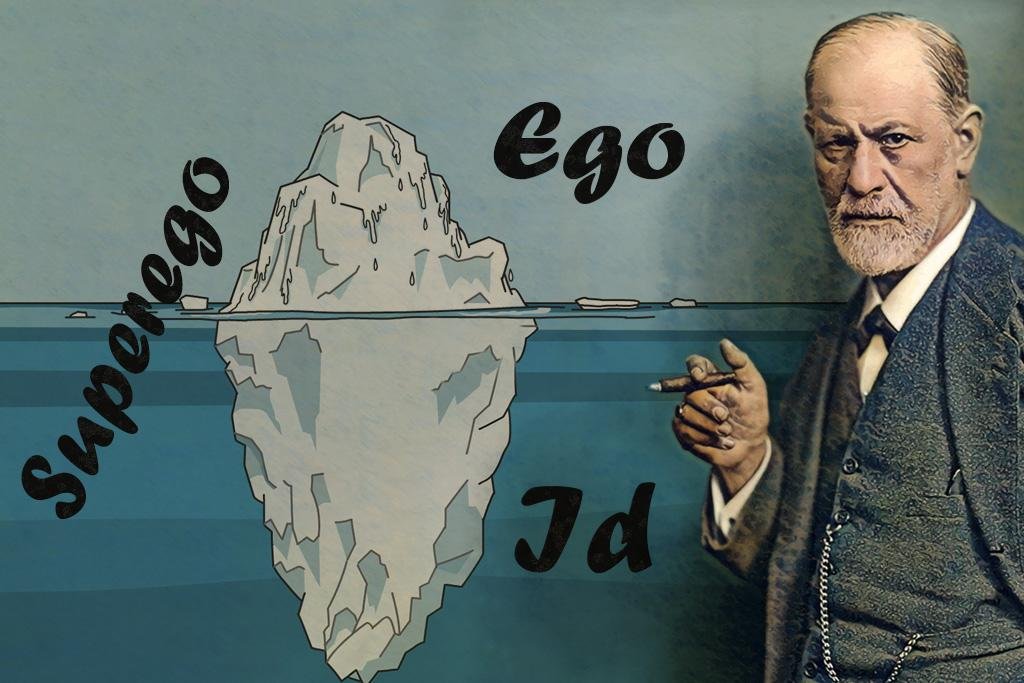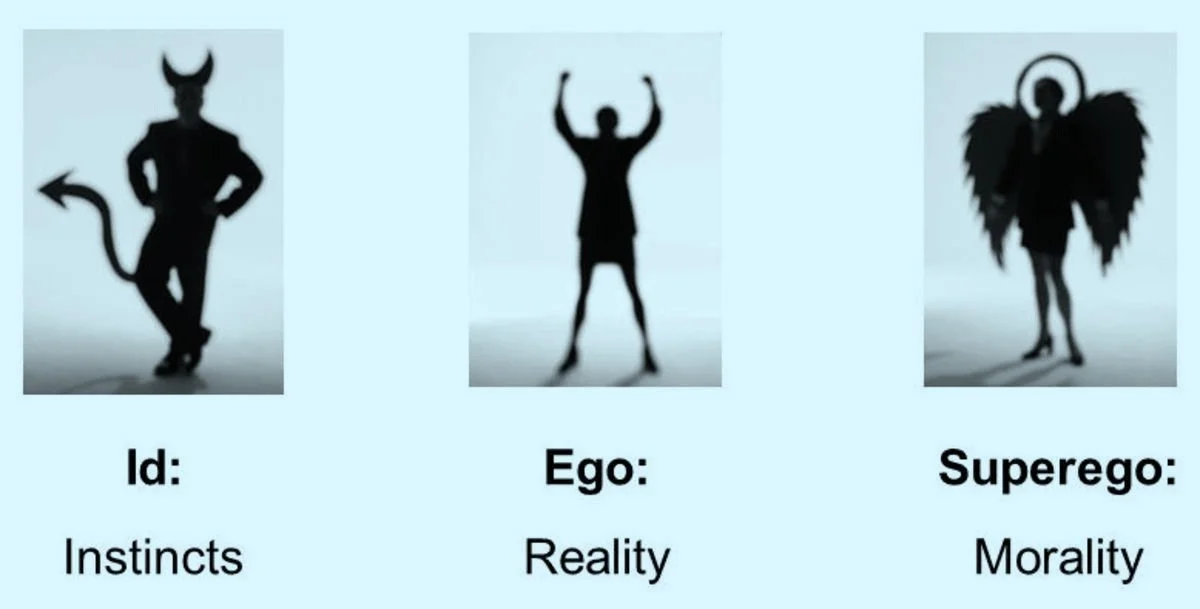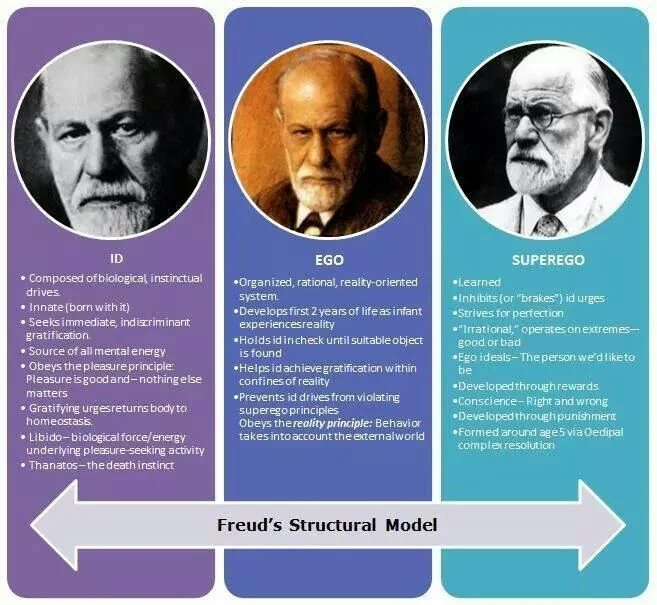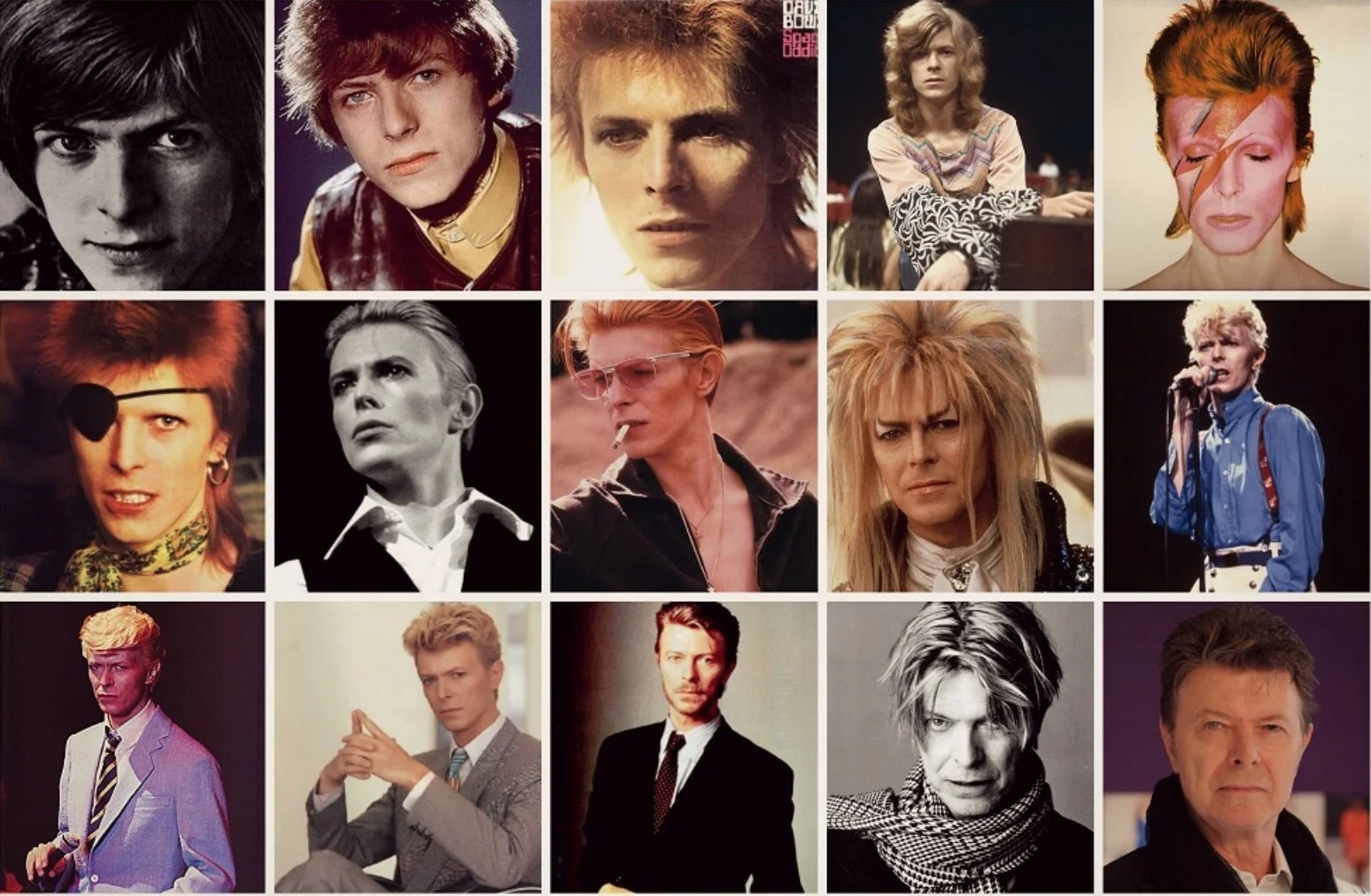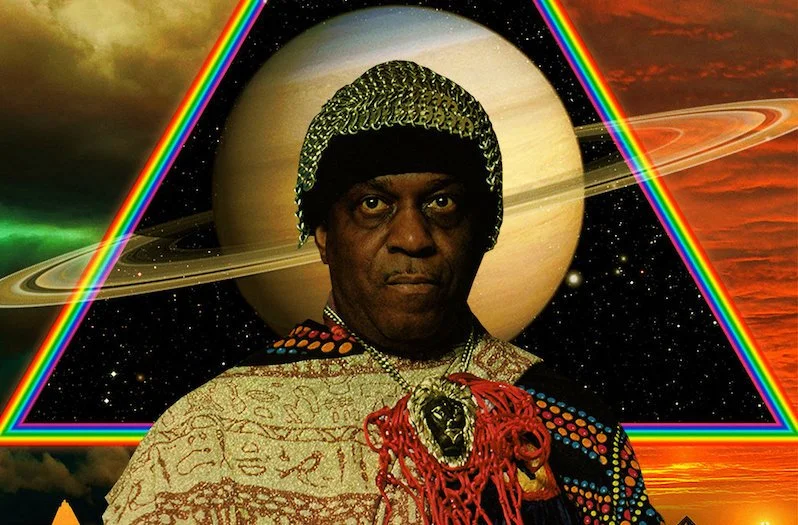By The Landlord
“Part of me suspects that I'm a loser, and the other part of me thinks I'm God Almighty.” – John Lennon
“The ego is a fascinating monster.” – Alanis Morissette
“The image that concerns most people is the reflection they see in other people's minds.” – Edward De Bono
“The ego represents what we call reason and sanity, in contrast to the id which contains the passions.” – Sigmund Freud
“Man’s ego is inflated, his laws are outdated, they don’t apply no more.” – Bob Dylan
“We are all a little schizophrenic. Each of us has three different people living inside us every day—who you were, who you are and who you will become. The road to sanity is to recognise those identities, in order to know who you are today.” – Shannon L Alder
“One has to know the size of one's stomach.” – Friedrich Nietzsche, Ecce Homo
“I have a huge ego and a huge inferiority complex at the same time.” – Barry Gibb
“Ego trip: a journey to nowhere.” – Robert Half
“To know thyself is the beginning of wisdom.” – Socrates
“No matter what we talk about, we are talking about ourselves.” – Hugh Prather
“If I am the chief of sinners, I am the chief of sufferers also.” – Robert Louis Stevenson, The Strange Case of Dr Jekyll and and Mr Hyde
Let’s face it, we humans are marvellous, malevolent, miraculously monstrous monkeys; at times, brilliant but basic, brutal and benign; generous yet greedy, gifted but grasping; complicated and cultured, but contradictory and often quite crazy. Will we ever fully understand what goes on in our minds?
This year sees the centenary of the publication of Sigmund Freud’s groundbreaking 1923 paper, The Ego and The Id (Das Ich und das Es), his analytical study of the human psyche with its three-part structure, one that followed that earlier, also very significant paper of 1915, The Unconscious. Whether or not you fully follow that psychoanalytical philosophy, one that certainly became an influential breakthrough of human analysis and self-understanding, life nevertheless continues to be far from straightforward, filled with internal and external conflicts, obstacles and confusions in which our species can’t help but continually make yet also break itself. But are we any closer to comprehending ourselves?
So it’s no wonder that the tensions between the various component parts of the mind can be such a driving force for all kinds of activities, not least attempting to express and understand through some form of art – painting, film, literature, theatre, comedy, but here, particularly through that of song.
So this week it’s all about lyrics that capture those inner battles, the contradictory sides of the personality, what drives and what brakes us, the devil on one shoulder, and the angel on the other, inexplicable mood shifts and motivations, dialogues with the conscious and subconscious mind. Whether that comes in first- or third-person narrative, seems to come as a subconscious flow, mentions ego and other terms, these are all good starting points.
As Robert Louis Stevenson put it further in his groundbreaking 1886 gothic novel: “I learned to recognise the thorough and primitive duality of man; I saw that, of the two natures that contended in the field of my consciousness, even if I could rightly be said to be either, it was only because I was radically both.”
Thankfully not everyone goes to such extremes, but at times many people feel as if there’s more than one person inside us, and that we can be a little Jekyll and Hyde.
The basic idea …
More detail
But first, let’s quickly define Freud’s central idea. The id is what we are born with - our primitive, illogical, irrational, selfish, greedy, impulsive side - one driven by hunger and passions with no concept of others or consequence. It is omnipresent in us as babies and young toddlers and lives on the subconscious.
The superego on the other hand, is developed in childhood by nurture, not nature, taking on societal values and morality, driven by rewards and punishment (pride and satisfaction, or shame and guilt). It inhabits both the conscious and subconscious mind, only semi-aware of its influences and driving forces.
And the ego, also formed after we are born, is mainly at work in the conscious (though in the iceberg analogy above has some mechanisms below water) and chiefly facing reality, but also trying to satisfy fantasy, is stuck in the middle between the two other elements, trying to balance and satisfy both, pleasure-seeking and yet torn about practicality and different needs. It must continually work to keep a balance. Freud describes the ego as “like a man on horseback, who has to hold in check the superior strength of the horse.” In this further analogy, in addition the superego is like a stern parent, a backseat driver:
Here also is another video explaining in more detail:
These terms may not always be for everyone to follow, but there’s no disputing the fact that we all face inner turmoil, one that’s been explored across all fields of life.
Freud’s influence is vast, from culture and wider world, and one fo the most brilliant expositions of this is the study of how his ideas were used by his nephew, Edward Bernays, who in America became a 20th-century pioneer of public relations and propaganda (also these days known as marketing and advertising), heavily influencing corporations and governments in how to control the mass will of the public, tapping into their conscious and subconscious minds, influencing and manipulating impulses on everything from buying to voting.
The Century of the Self (2002) all about this is another superb documentary series by Adam Curtis, all about such social control influenced by Freud’s ideas, packed with amazing footage and revelations.
Your inspiration for this topic may of course come from music artists themselves. There’s a few in our time-travelling Bar here to offer more insight, all offering survival tips in that world.
“The whole music business is built on ego, vanity, self-satisfaction, and it's total crap to pretend it's not,” proclaims George Michael, who very much struggled with his success behind the scenes.
“Basically, I think you need two things to get by in this world: a sense of humour and the ability to laugh when your ego is destroyed,” says Arlo Guthrie
“To have ego means to believe in your own strength. And to also be open to other people's views. It is to be open, not closed. So, yes, my ego is big, but it's also very small in some areas. My ego is responsible for my doing what I do - bad or good,” adds Barbra Streisand.
It’s a cliche to think of the egotistical artist, but that’s something unavoidable. The best songs perhaps manage to combine that ego with the other elements in balance, but clearly many also fail. The mental health issues of Kanye West are a clear example and well publicised. In the context of that case, friend and Gorillaz collaborator with Damon Albarn, Jamie Hewlett, says of the rapper: “Ego is the death of a lot of art. To believe in yourself that much is to stop being an artist.”
“I have never seen a greater monster or miracle than myself,” wrote Michel de Montaigne and that perhaps sums up many egotistical creatives, but while this week’s song nominations are also about that struggle for self-knowledge. As Adam Smith put it: “The first thing you have to know is yourself. A man who knows himself can step outside himself and watch his own reactions like an observer.”
So song nominations might also capture dialogues between the conscious and subconscious, or split-personality songs.
The actor Jim Carrey is also in the Bar today, and tells us that "I love playing ego and insecurity combined.” He captures this perfectly in his portrayal of legendary American standup Andy Kaufman biopic, Man on the Moon. Kaufman brilliantly baffled and entertained audiences with his various personas, one who variously seemed to inhabit the ego, id and superego, from his so-called “Foreign Man”, who spoke in a meek, high-pitched, heavily accented voice, impersonated Elvis and later became the character of Latka in the sitcom Taxi, but by contrast took on the persona of brash, overweight, dirty-minded performer Tony Clifton, fooling audiences with this persona, as well as winding up all kinds of others by challenging women to wrestle in the ring.
The three sides of Freud’s theory are also perfectly captured in a Simpson’s episode in which Bart and Lisa pulling either side of Homer’s ego.
Homeric identity …
But your song choices might also come with some inspiration from films, particularly those of Alfred Hitchcock. An obvious example is Psycho (1960), filled with Freudian concepts around the complex mind of motel host Norman Bates, from sexual desire and violence to the Oedipus Complex. The philosopher Slavoj Žižek, who illustrates many of his ideas through the prism of popular culture, has described three floors of Bate’s mansion as representing the three levels of the human mind; id, ego, and superego where the baser, subconscious id represents primary instincts, referring to the basement where Bates holds that scary secret.
Hitchcock explored the subconscious in other films, such as the wonderfully scored Vertigo, a study in repression, fear and desire starring James Stewart in Kim Novak, and Spellbound, which actually has a psychoanalyst as its main character, Dr. Constance Peterson, played by Ingrid Bergman.
But there are many other Freudian films and books, that have also inspired songs. Stanley Kubrick’s Clockwork Orange (from the book by Anthony Burgess) is a stylish study in deviant adolescent criminality, Malcolm McDowell’s Alex brilliantly portrayed as one who lets the ‘id’ get full satisfaction before he faces painful rehabilitation through the Ludovico technique.
The 21st century has continued to produce films that follow Freudian idea that also bear parallels in song. Just before it, came David Fincher’s Fight Club (1999), about a repressed soap salesman starring Edward Norton who digs out a a repressed masculinity via the portal of Brad Pitt. Or there’s Darren Aronofsky’s Black Swan (2010) about a split-personality ballerina played by Natalie Portman. Paul Thomas Anderson’s The Master (2012) is about a troubled ex-soldier and id-ish figure, Freddie Quell, played Joaquin Phoenix, dangerously coming under the influence of an L Ron Hubbard figure of the Scientology ilk.
Or, perhaps best of the Batman movies, is Christopher Nolan’s The Dark Knight (2008) In this, the anarchic, destructive Joker (a brilliant performance by the late Heath Ledger) represents the id, Batman (Christian Bale) is the superego, assuming ethical and moral position, while Harvey Dent (Aaron Eckhart ) represents the ego torn between the two, pulled towards evil over good.
Yet musicians themselves have never been short of playing with Freudian ideas of egos, and alter-egos to deal with inner conflict. David Bowie of course had Ziggy Stardust, Aladdin Sane, the Thin White Duke and others.
The many personas of David Bowie, but which explored the subconscious
In 1971, Paul McCartney played with a secret persona, releasing a big-band oddball project under the name Percy Thrillington. After the New York Dolls split, singer David Johanson relinquished the glam cross-dressing to don a tuxedo and become lounge singer Buster Poindexter. Prince famously played with a high-voiced persona called Camille. XTC’s Andy Partridge and producer John Leckie meanwhile mischievously released two psychedelic albums under the name The Dukes Of Stratosphear.
Some performers adopt a new character who their entire career. How then might Freudian ideas manifest themselves in the work of Herman Blount, who became the legendary jazz keyboard player and composer, Run Ra, who declared himself “an angel from Saturn”, and “since I don’t consider myself as one of the humans, I’m a spiritual being myself.”
Angel of Saturn Sun Ra (formerly Herman Blount)
Many hip-hop artists have more calculatedly adopted ‘characters’ to get away with controversy not lest Marshall Mathers (aka Eminem) as Slim Shady, while the ill-fated 2pac Shakur temporarily became Makaveli, influenced very obviously by the writings of 16th-century Florentine philosopher Niccolo Machiavelli whom he discovered in prison. And perhaps also worth exploring is Nicki Minaj’s adventures as Roman Zolandski, a fast-talking, controversy-courting, flamboyant British gay man.
So then, it’s time to delve in the complexities and conflicts of the conscious and sub-conscious, as expressed in song. Making sense and sanity of all this is this week’s calm and collected listening guest, Professor Loud Atlas! Place your songs on virtual psychoanalyst’s couch, for considering by deadline 11pm UK time on Monday, for playlists published next week.
Freud’s couch in London
New to comment? It is quick and easy. You just need to login to Disqus once. All is explained in About/FAQs ...
Fancy a turn behind the pumps at The Song Bar? Care to choose a playlist from songs nominated and write something about it? Then feel free to contact The Song Bar here, or try the usual email address. Also please follow us social media: Song Bar Twitter, Song Bar Facebook. Song Bar YouTube, and Song Bar Instagram. Please subscribe, follow and share.
Song Bar is non-profit and is simply about sharing great music. We don’t do clickbait or advertisements. Please make any donation to help keep the Bar running:

